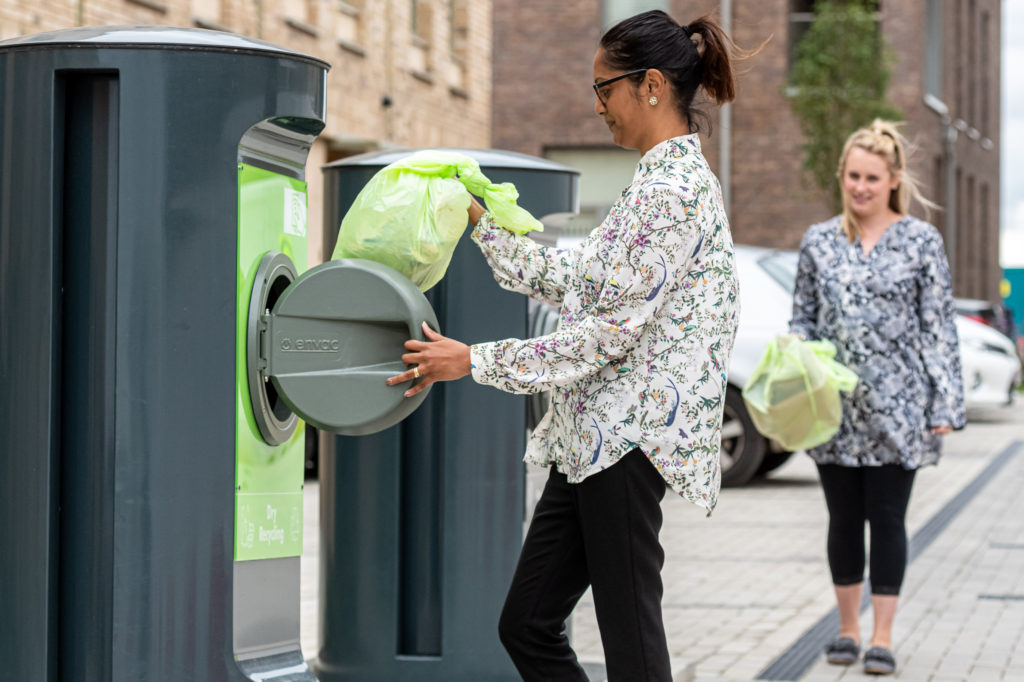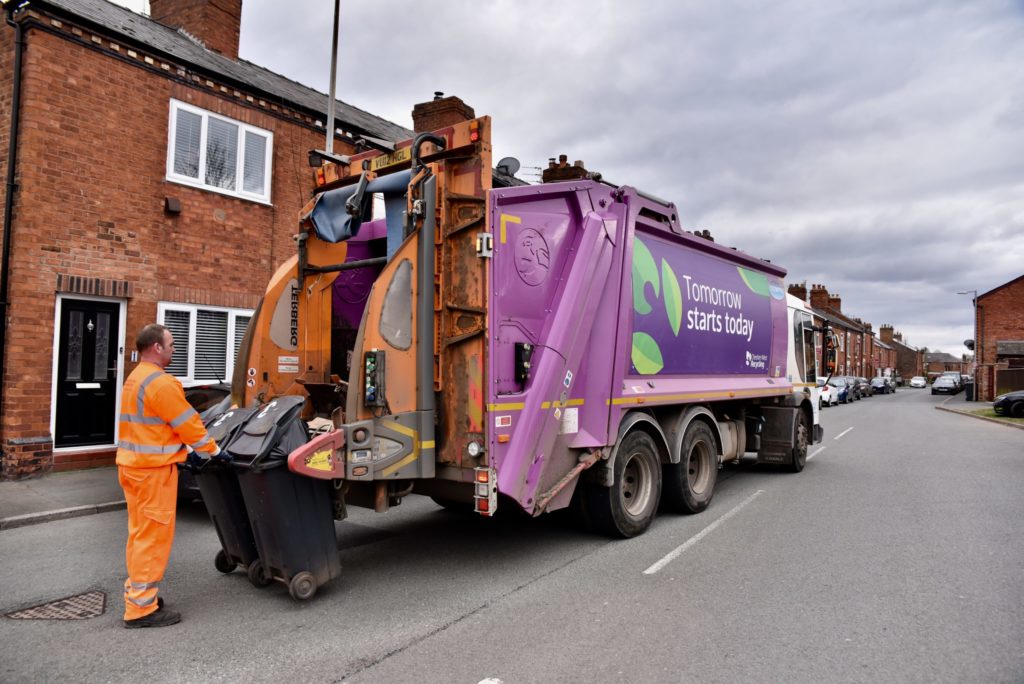At the 178-hectare Barking Riverside complex there are no wheeled bins or recycling boxes – instead 460 ‘inlets’ will replace the 19,000 traditional bins that would usually be installed on a site like this, as part of the project’s aim to build a “healthy new town”.
These inlets are connected to a network of subterranean pipes which suck waste to a single collection point on the periphery of the development, from which local authority vehicles pick up the waste.
Barking is only the second site in the UK to use Envac’s technology, following the installation of the system at Wembley in 2008. (see letsrecycle.com story)
But globally over 1,000 areas – from Bergen to Barcelona – use the Envac waste management set up.
Inlets
Pairs of inlets are installed in front of flats at Barking Riverside, with around 60 people using the system at present. One inlet takes residual waste, whilst the other is used for commingled recycling.
For residents, the system is not dissimilar to other communal on-street bins, particularly those found in Europe – people go to the inlet, scan their fob to open it, and deposit their waste inside. After this the process becomes quite different to other waste systems.
“What we try to say is rather than getting a weekly or fortnightly collection you’re getting a twice daily collection – it’s much cleaner, easier, convenient.”
The inlets are half a metre wide and waste drops down nine feet to the pipe. Each pair will be emptied into the main pipe twice a day, with it taking two hours to empty each waste stream – in total this means waste for just under 10,000 homes will be collected in eight hours.
“What we try to say is rather than getting a weekly or fortnightly collection you’re getting a twice daily collection – it’s much cleaner, easier, more convenient,” said Dave Buckley, managing director of Envac UK.
Once the waste has made its way to the collection centre, Barking and Dagenham council’s refuse vehicles will collect containers of waste 16 times per week. Mr Buckley noted that on a development the size of Barking Riverside, waste collection lorries would usually be an almost constant presence.
Waste from the site is ultimately sent to Renewi’s Frog Island waste management facility, like other waste collected by the local authority.
The system for emptying the inlets runs automatically but can be manually triggered by staff via a phone or tablet at busy periods or set off by laser sensors within the inlets too – something which has already been experienced, as the system is not currently running a full four empties per day.
Mr Buckley explained: “We did have a lot of people moving in at the weekend and it was overfilled, so Saturday afternoon we had had the 8 o’clock collection and by the evening it needed emptying again.
“But it’s early days and we are settling in. When it is going to be emptied four times a day we will not need to use it.”
Food waste
Though food waste is not currently collected by the London Borough of Barking and Dagenham, the Envac system has been built with the capacity to facilitate separate food waste collections – which are likely to be mandated by government in the future.
Whilst inlets for food waste would still need to be installed across the development, the collection centre is already equipped for collecting three streams of waste – residual, recycling and food.
Education
The hi-tech nature of the Envac system means it has added potential for educational opportunities.
As a personal fob is needed to use the bins the Envac team will be able to monitor how residents are disposing of their waste – whether they are putting all their waste in the residual chute or if they are only using the recycling inlet and thus contaminating collections.
“There will need to be a carrot and a stick approach,” said Mr Buckley as he explained how this data would be used.
This would involve contacting residents who are disposing of waste incorrectly and potentially increasing service charges if a lack of proper recycling increases disposal costs for Envac and Barking Riverside.
More positively, in the future good recycling habits will be celebrated through a partnership with the Green Rewards scheme, which already runs in other London boroughs like Camden and Bexley.
Plus the presence of seven schools on the Barking Riverside site means that Envac plans to be proactive in teaching younger generations how to use their system.
Barking Riverside and Envac are also in the process of equipping an ecological centre, that will allow residents to see what happens to their waste, as well as being used as a space for educating local people on recycling.











Subscribe for free